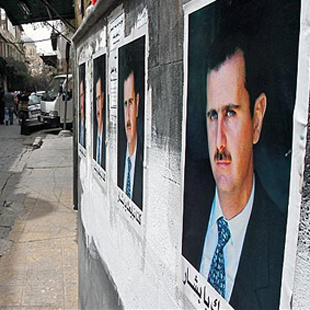Palestine Policy in the Post-Mubarak Era

MSD: There are several contributing factors, each partially explaining this breakthrough agreement. First is the regime change in Egypt and the ouster of a political team that hardly reflected the demands of the Egyptian majority: the new government has eased the blockade on Gaza, solacing the strip from its prison-like state. The Camp David Accord will, however, remain intact due to its strategic importance. The new political orientation in Cairo will most likely lead to modification of less strategic agreements, such as the Gaza siege and the gas deal with Tel Aviv.
Second is the challenge Hamas is encountering in Gaza. Radical Islamists are flexing their muscles there. They recently kidnapped and murdered Italian peace activist Vittorio Arrigoni. Hamas reacted to the blatant murder by arresting Salafist affiliates and killing two members of the radical Tawhid and Jihad militant group suspected of the murder. It has also set a moratorium on its rocket launching into southern Israel, since regional developments have overshadowed the problem of the Palestinians and Hamas doesn’t want to provoke Israel with bloodshed while the region has turned its view to another direction. Another contributing factor that has convinced Hamas to re-embrace the Egypt-proposed peace deal is the continued settlement construction in the Occupied Territories and the US’ lenience towards Israel, which has frustrated many with the peace process.
Like their Arab brethren, Palestinians have been also pressuring their political leaders; not for political reforms or economic welfare, but for unity and an end to the 5-year feud. Bashar Assad’s shaky situation in Syria has also raised worries among Hamas leaders. They have firmly supported Assad since the outbreak of demonstrations in Syria and know, as the situation in Syria spirals into chaos, the threat of losing their main foothold adjacent to the Palestinian territories. Resolving differences with Fatah gives them a chance to hold their base in Gaza, or even settle in the West Bank.
IRD: The Palestinian Authority has announced that it would file a unilateral sovereignty declaration in the next UN General Assembly. How can the Hamas-Fatah reconciliation facilitate Palestinian statehood, and its recognition by other members of the international community?
MSD: Mahmoud Abbas has tried to build on the wave of Palestine’s acknowledgement by Latin American countries to prepare the international community to recognize a state formed within the 1967 borders. Europeans have timidly approved the initiative, though it seems that the US’ and Israel’s opposition will prevent them from giving a final agreement. Washington is against any unilateral declaration of an independent Palestinian state and so is Israel, which sees this in abrogation of the Oslo Accords. Netanyahu recently said that Mahmoud Abbas should choose peace with Israel, not Hamas. In response, Abbas has called Hamas part of the Palestinian people, and asserted that it is Israel that has to choose between settlements and peace.
IRD: Syria has for long been a partner of the Resistance bloc- Hamas and Hezbollah- in the Middle East. Considering the ambiguous situation in Syria, could Iran or Turkey surrogate these two groups?
MSD: The point is that these groups should settle in a country adjacent to their motherland. So out of the Syria, Lebanon, Jordan and Egypt package, it would be hard to function as before. There is one question here that we should ask Palestinian groups: have they learnt their lesson from history, to not meddle in the internal affairs of their host country?
Iran has also made diplomatic mistakes. Supporting Syria’s policies is one thing, and supporting its political structure is something else. Syria is a hereditary republic where democracy is not the politicians’ favorite option, and the people’s vote is disregarded. Even as allies of the Syrians and Palestinian Resistance groups, we should not intervene in Syria’s domestic affairs and take sides, be it for the government or for the protestors. Turkey has acted better than Iran. Even though Syria is their strategic partner, the Turks have not been reserved in criticizing Bashar Assad’s behavior towards the pro-democracy protestors.
IRD: Could Egypt replace Syria in the Resistance bloc?
MSD: Egypt has played a central role in the reconciliation between Fatah and Hamas. But I’m not sure if this heralds an era of active Palestine policy in Cairo. The mood in relations between Israel and Egypt in the post-Mubarak era seems to be yet determined. Relations can go downhill, reminiscent of the age of Gamal Abdul-Nasser, but a severance of ties is an unlikely contingency. Egypt’s new Palestine policy will remain between the lines; that is, Cairo will no longer use the Palestinians as a card in diplomatic ties, but it also won’t return to the age of Pan-Arabism and the “Palestine First” policy.

